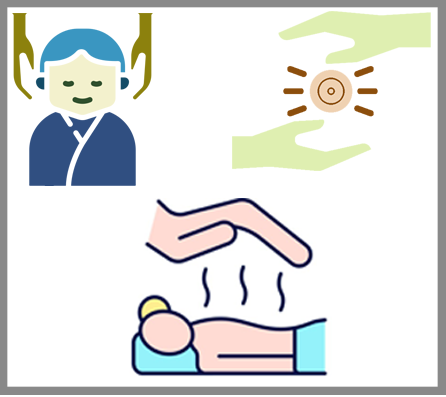7:00 - 19:00
Sun - Fri

Learn About Reiki
Reiki therapy is based on an Eastern belief that vital energy flows through your body. The idea is that a person who specializes in reiki treatment, referred to as a reiki master, uses gentle touch – or places their hands just above your body – to help guide this energy in a way that leads to balance and healing.
Reiki is a form of alternative medicine that originates in Japan in the early 1900s. It is based on the idea that a universal vitality is energy that flows through all living things. Doctors believe that this energy can be utilized and sent to promote treatment, relaxation and general welfare.
Reiki has been studied for conditions like pain, anxiety, and depression. It’s a complementary treatment, which means you use it along with proven traditional medical treatments. It doesn’t cure or get rid of any health conditions by itself.
Reiki practitioners act as a middle ground between you and energy forces. Energy travels from their hands to you, and more specifically the areas of focus. During a session, you would take only the energy flow that you need instead of what the reiki practitioner might think you need.
While many individuals report positive experiences with Reiki, scientific evidence of effectiveness is mixed. Some studies suggest that it can help reduce stress and promote relaxation, while others have no significant effects. With any alternative medicine, it is important for individuals to consult with health professionals and assess evidence -based treatments.
Back